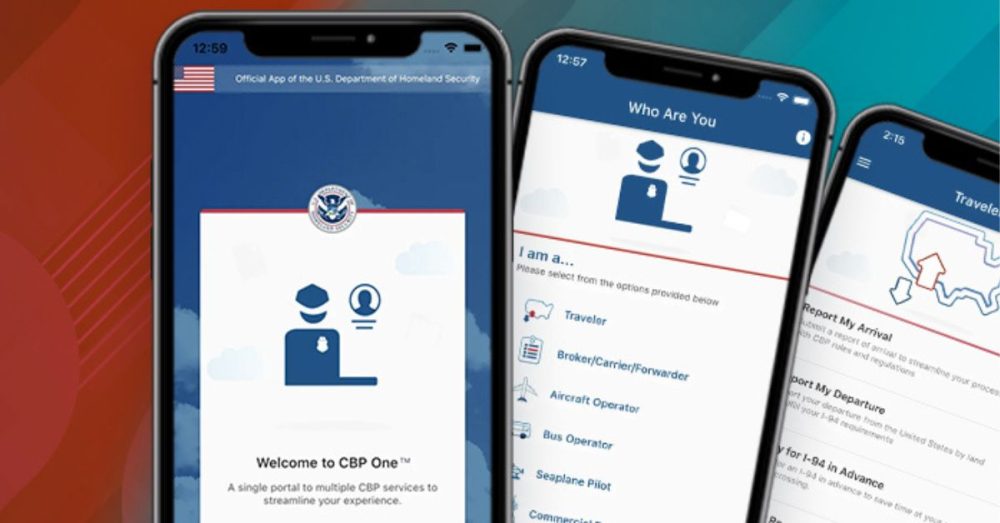A U.S. Customs and Border Protection mobile app for potentially illegal aliens looking to claim asylum experiences errors and may be susceptible to cyber-attacks, according to a report.
The Department of Homeland Security’s Office of Inspector General (OIG) released a report this month detailing concerns about the CBP One mobile app. U.S. Customs and Border Protection (CBP) developed the app in 2020, and it became a core part of a new immigration program last year.
The Biden administration launched a plan in 2023 that allows migrants to set up appointments through the CBP One mobile app at eight ports of entry before their arrival. The app allows migrants to submit information before their appointment. The plan was part of the administration’s efforts to simplify legal immigration as it attempted to counter the historic number of illegal migrant encounters at the border.
The OIG report concluded the CBP One mobile app needs further development.
“We found that CBP did not initially consider critical factors such as the design of the CBP One Genuine Presence functionality, adequacy of supporting appication infrastructure, sufficiency of language translations, and equity of appointment distribution,” the report reads. “As a result, noncitizens initially using the new feature experienced application crashes, received frequent error messages, faced language barriers, and may not have always had an equal opportunity to secure an appointment.”
The report also “identified security vulnerabilities within the CBP One application and its supporting infrastructure operating systems. Without a process to ensure all corrective security patches are timely implemented and assets are properly configured, CBP One data could be susceptible to exploitation or cyber-attacks.”
The report included three specific recommendations:
“Recommendation 1: We recommend CBP’s Office of Field Operations develop and implement a formalized risk assessment process when developing, expanding, or modifying mobile applications.
“Recommendation 2: We recommend CBP’s Office of Field Operations implement a mechanism to analyze CBP One advanced information for trends and patterns of fraudulent behaviors by users of CBP One and communicate its results to the eight ports of entry that process CBP One appointments.
“Recommendation 3: We recommend CBP’s Office of Information Technology implement a mechanism to routinely assess CBP applications and supporting infrastructure operating systems for configuration and patch management vulnerabilities and timely implement corrective actions.”
Federal government data revealed the Biden administration is on pace to oversee 10 million illegal alien encounters at the southern border, according to the House Committee on Homeland Security.
CBP touted this month that the CBP One mobile app helped schedule appointments for 765,000 migrants since the appointment feature was added in January 2023. A spokesperson for the agency claimed the CBP One mobile app is an improvement over previous efforts to manage the situation at the border and will continue to improve.
“The CBP One mobile application allows certain noncitizens to schedule an appointment for processing by CBP at a specified port of entry, and is part of DHS’s efforts to incentivize noncitizens to use lawful, safe, humane, and orderly pathways and processes to travel to the United States,” the spokesperson told The Dallas Express in a statement.
“CBP is required by law to process migrants who present at ports of entry on the border and the use of CBP One offers a significant security improvement over migrants arriving at ports of entry without submitting advanced information and scheduling an appointment,” the statement continued.
“CBP has made significant improvements and continues to strengthen the application to address risk-related issues and concerns, including measures to ensure equity in appointment allocations, following the DHS OIG fieldwork on CBP One during the timeframe of August 2023 to January 2024. CBP has been diligent in working to prevent and counter any misuse of the application or any potential exploitation of noncitizens from bad actors and will continue to strengthen those countermeasures.”


